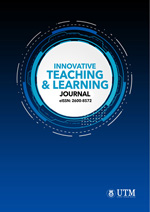Publication Ethics
- Authorship should be limited to
- those who have made a significant contribution to the conception, design, execution, or interpretation of the reported study.
- those who have made significant contributions should be listed as co-authors.
- others who have participated in certain substantive aspects of the research project, they should be acknowledged or listed as contributors.
- The corresponding author should
- ensure that all appropriate co-authors have seen and approved the final version of the paper.
- have agreed to its submission for publication.
- manage any requests to add, delete or rearrange author names in an article published in an online issue.
- The authors should
- ensure that they have written entirely original works, and if the authors have used the work and/or words of others, that this has been appropriately cited or quoted.
- secured the necessary reproduction rights with the rights holder for any third party material (images, digital content, etc.) you have used prior to submission.
- ensure that they have acknowledge any funding that have contributed to the publication.
- provide the raw data in connection with a paper for editorial review, and should be prepared to provide public access and retain such data for a reasonable time after publication.
- NOT in general publish manuscripts describing essentially the same research in more than one journal or primary publication.
- NOT submit the same manuscript to more than one journal concurrently constitutes unethical publishing behavior and is unacceptable.
- include disclosure of all relationships that could be viewed as presenting a potential conflict of interest.
- promptly notify the journal editor or publisher and cooperate with the editor to retract or correct the paper.
- ensure that the manuscript contains a statement that all procedures were performed in compliance with relevant laws and institutional guidelines and that the appropriate institutional committee(s) has approved them.
- include a statement in the manuscript that informed consent was obtained for experimentation with human subjects.
- obtain appropriate consents, permissions and releases where an author wishes to include case details or other personal information or images of patients and any other individuals.
- The Editors and/or Editorial Board should
- keep information pertaining to submitted manuscripts confidential.
- disclose any conflicts of interest.
- evaluate manuscripts only for their intellectual content without regard to race, gender, sexual orientation, religious belief, ethnic origin, citizenship, or political philosophy of the authors.
- be responsible for making publication decisions for submitted manuscripts.
- review suspected incidents of plagiarism.
- Reviewers should
- notify the journal of any conflicts of interest.
- keep information pertaining to the manuscript confidential.
- bring to the attention of the Editors any information that may be reason to reject publication of a manuscript.
- evaluate manuscripts only for their intellectual content without regard to race, gender, sexual orientation, religious belief, ethnic origin, citizenship, or political philosophy of the authors.
















